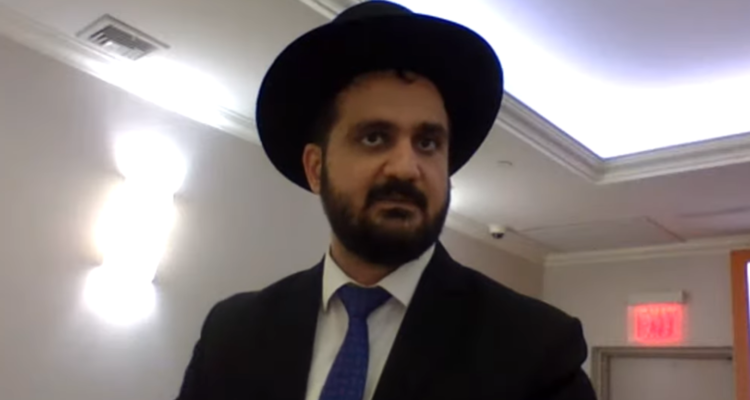The Iranian Jewish community was in danger after the strike on Soleimani, said Rabbi Gerami.
By World Israel News Staff
Rabbi Yehuda Gerami, the head of Iran’s 8,500 person-strong Jewish community, gave a speech at a Chabad in Virginia on Sunday evening which illustrated the precarious position of the Islamic Republic’s Jews.
After then president Donald Trump ordered an airstrike which killed Iran’s General Qasem Soleimani in January 2020, Gerami found himself needing to publicly condemn the assassination and pay a condolence call to his family in order to protect the Jewish community.
“The situation was very sensitive,” Gerami was reported by the Times of Israel as saying during a Farsi language speech. “We felt that sensitivity, not from the government, from the people. They talked about revenge.”
Jews in Iran often face suspicion. Most have family ties to the United States or Israel, making them the target of scrutiny both from the Iranian government and their Muslim neighbors.
The rumor that Israel had supplied the intelligence around Soleimani’s whereabouts which facilitated the American strike may have endangered Iran’s Jews, Gerami said.
“We felt there could be danger,” he said. “Then we had to go give interviews and say we were not for it, that we don’t agree with this war.”
Despite studying for a year in a yeshiva in Jerusalem when he was a teenager, Gerami has made a number of statements indicating that he is vehemently opposed to the state of Israel and Zionism.
The revelation in his recent speech that he had to condemn the strike on Soleimani to preemptively cut off accusations of dual loyalty or worse against Iranian Jews may provide some insight into his previous remarks.
But despite the complicated dynamics Iranian Jews need to navigate, the situation isn’t all bad for the Jewish community still living in the country.
“Iran is the only place where synagogues don’t need any security,” Gerami noted, as opposed to Jewish houses of worship in Europe which require armed security guards and intense screening.
“But we have to use our wisdom, we are guests and we have to be diplomatic,” he added.
Gerami’s description of Iranian Jews as “guests” in the country is particularly notable, as Jews have historically lived in Iran since 727 BCE.





